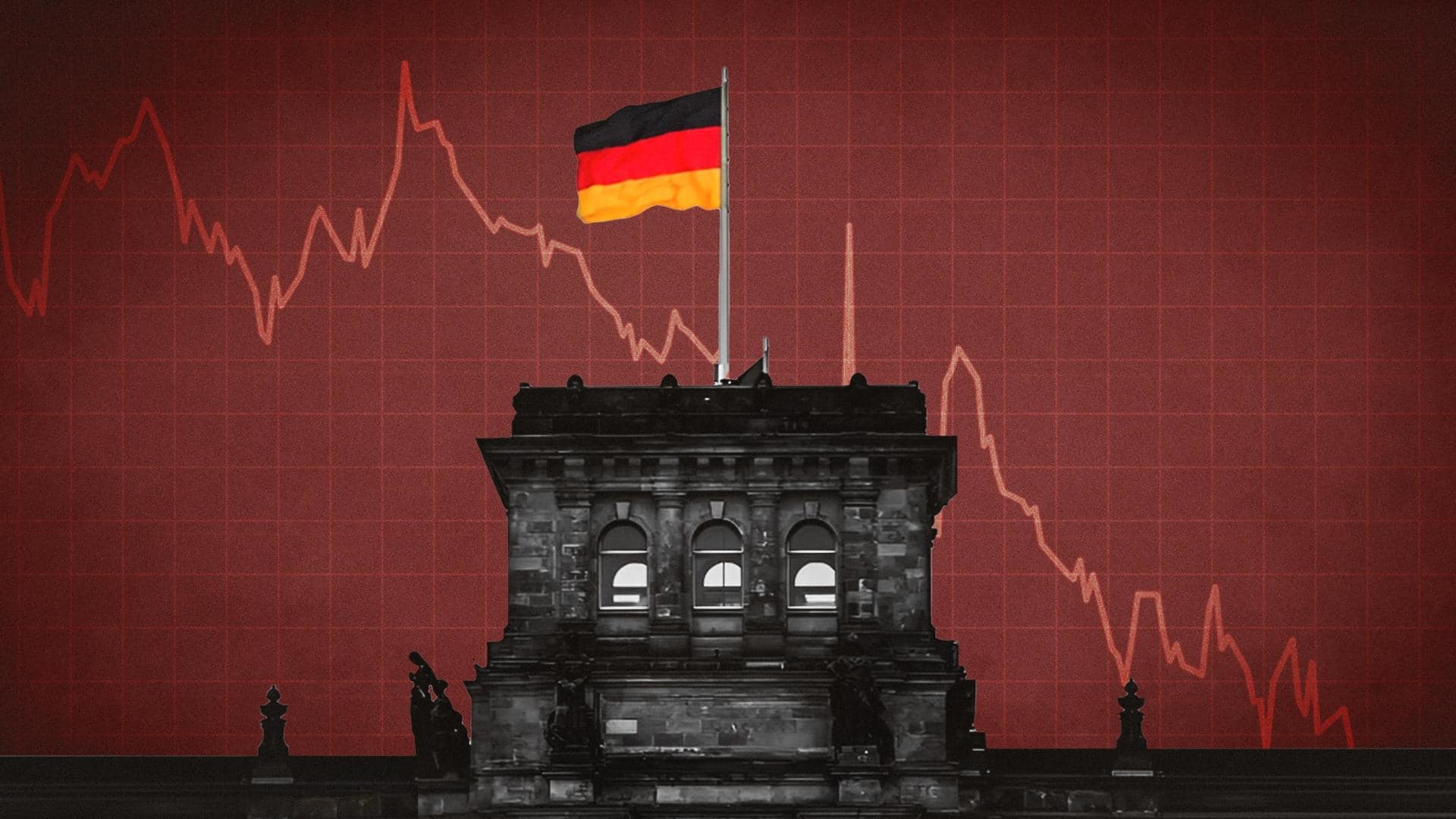
Germany enters recession after a second consecutive GDP contraction
What's the story
Germany, the biggest economy in Europe, shrunk in the first quarter of 2023 compared to the previous three months. The gross domestic product (GDP) fell 0.3%, thereby marking the country's entry into recession. This is the second consecutive quarter where Germany's GDP has declined. When there is a contraction in GDP for two consecutive quarters, it is considered a recession.
Context
Why does this story matter?
Economic activity in Europe has been subdued over the past year. Persistent high inflation and tight financial conditions have been a common theme across the continent. Considering Germany's importance in Europe's economic aspirations, a weak German economy spells more trouble for the region. The recession in Germany is also a testament to the struggles of major economies, including the US and China.
GDP
Country's GDP is down 0.5% year-over-year
In the last quarter of 2022, the GDP dropped 0.5%. Earlier estimates had shown GDP stagnating in the first quarter of this year and Germany narrowly escaping recession. However, that's not how it turned out. Compared to Q1 2022, the GDP is down by 0.5%. The data was released by Destatis, the federal statistical office.
Inflation
Household consumption fell by 1.2% quarter-over-quarter
Inflation is Germany's chief foe. The country has been struggling to cope with rising prices. As a result, household consumption is down 1.2% quarter-over-quarter. The German consumer spent less on food, drink, and clothing compared to the previous quarter. Government spending dropped significantly by 4.9% quarter-over-quarter. People also spent less on cars after the government discontinued subsidies at the end of 2022.
Reason
The falling Russsian energy supply affected Germany
Prices have been on the rise across Europe after the Russia-Ukraine crisis began. Food and energy costs have been going up. The main reason behind inflation is the dwindling energy supply from Russia. Germany was particularly exposed as it was heavily reliant on Russian energy imports. The German government's €200 billion energy support was unable to cushion the impact completely.
Information
Inflation has shown signs of easing
The country, however, was saved from bad scenarios like gas shortages due to a mild German winter. In April, the country posted an inflation rate of 7.2%, the lowest in seven months. In March, it was 7.4%.
Positives
Investment and trade were positives in first quarter
It wasn't all bad for Germany in the first quarter of 2023. Investment, which was down in the second half of 2022, showed signs of improvement. There was a 3.2% increase in investment in machinery and equipment, while investment in construction increased by 3.9%. Trade also showed positive signs. Exports rose by 0.4%, while imports declined by 0.9%.